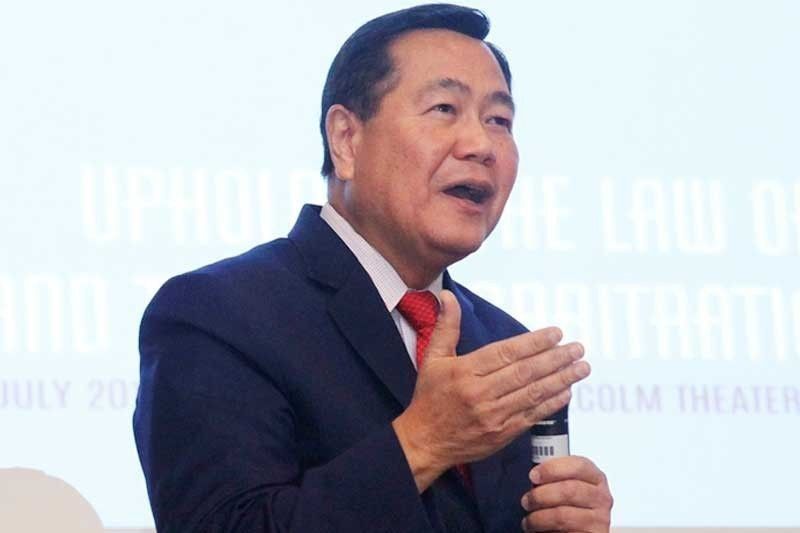Joint exploration may settle SCS row — Carpio

MANILA, Philippines — The recently signed memorandum of understanding (MOU) between the Philippines and China on joint oil and gas development could serve as the foundation for finally settling the disputes in the South China Sea, Supreme Court Associate Justice Antonio Carpio said on Friday.
Carpio made the remark during the Pilipinas Conference organized by Stratbase and the Albert del Rosario Institute in Makati City.
The signed MOU – which is the Philippine draft and not the China draft – envisions a service contract-type agreement on oil and gas development that allows income splitting without China encroaching on Philippine sovereign rights, according to Carpio.
He explained that under the MOU, the China National Offshore Oil Corp. (CNOOC) will cooperate in oil and gas activities either as a subcontractor of the Philippine service contractor or as an equity holder.
“If China has truly accepted this cooperation arrangement then we have found a formula for finally settling the maritime dispute in the South China Sea. This formula will use the service contract as a vehicle for cooperation on oil and gas activities. This formula will be acceptable to any claimant state,” Carpio said.
Carpio was part of the legal team that argued the Philippines’ case against China before The Hague-based Permanent Court of Arbitration (PCA) in 2012.
In 2016, the PCA ruled in favor of the Philippines, invalidating Beijing’s nine-dash line claim over the South China Sea.
Carpio noted the Chinese draft MOU calls for joint exploration and exploitation of oil and gas, while the Philippine draft calls for cooperation on oil and gas activities through the vehicle of Philippine service contracts.
“Joint exploration and exploitation violate the Philippine Constitution which requires that the Philippine state should exercise full control and supervision in the exploration and exploitation of the natural resources,” he said.
“In joint exploration and exploitation, the Philippines loses full control and supervision,” he added.
Carpio said he backed the MOU as the contract that Manila and Beijing will enter into will follow Philippine laws and regulations.
The MOU was signed during the two-day state visit of Chinese President Xi Jinping to the Philippines last month.
“The model service contract of the DOE (Department of Energy), in its whereas clause, states that the natural resources covered by the contract belong to the Philippine state,” he said.
“The second whereas clause states that the contractors should comply with Philippine laws and regulations,” he added.
“The contract also provides that the governing law shall be Philippine law,” Carpio said.
He said Presidential Decree No. 1459, which governs payment to service contractors, provides that the share of the Philippines shall not be less than 60 percent of the net income, including the taxes paid to the Philippines.
“Clearly under the signed MOU there is compliance with the Philippine Constitution and there is no waiver of the Philippine sovereignty rights under the arbitral ruling,” Carpio said.
Related video:
- Latest
- Trending





























